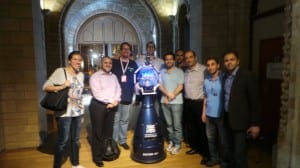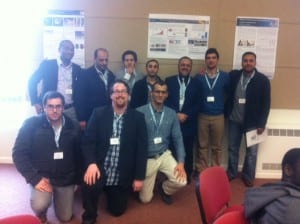The monthly PGRs Research Presentations was held on Wed. 11th March, 2pm, Room MC3108.
This session we had the following presentations:
| Title: “Retinal Vascular Measurement“. | Title: “4D Lifelong Exploration of Dynamic Environments” | |
|
By: Francesco Caliva |
By: Joao Santos |
|
| Abstract: Several studies have shown that systemic diseases affect blood vessels’ geometry. Retina is a window in the vascular system, thus fundus images can be adopted to diagnose or evaluate pathological conditions. Segmentation algorithms are not able to completely segment blood vessels. This failure results in a set of disconnected vascular segments. Reconstructing the whole network has crucial importance. At this aim, in this work, implicit neural cost functions have been adopted to evaluate how the segments can be joined. In this talk I will present my current and future work. | Abstract: We present a novel 4D lifelong exploration method for dynamic, human populated environments. In contrast to other exploration methods that model the environment as being static, our spatio-temporal exploration method creates and maintains a world model that not only represents the environment’s 3D structure, but also its dynamics over time.The predictive ability of the 4D spatio-temporal model allows the exploration method not only where, but also when to make environment observations. To validate our method, a mobile robot was deployed over 5 days in an office environment, and the proposed method was compared against a static approach. The results show that through understanding of the environment dynamics, the spatio-temporal exploration algorithm could predict which locations were going to change at a specific time and used this knowledge to guide the robot. This allowed our spatio-temporal exploration method to gather more information that the exploration method that relied on a static environment model. |
|

